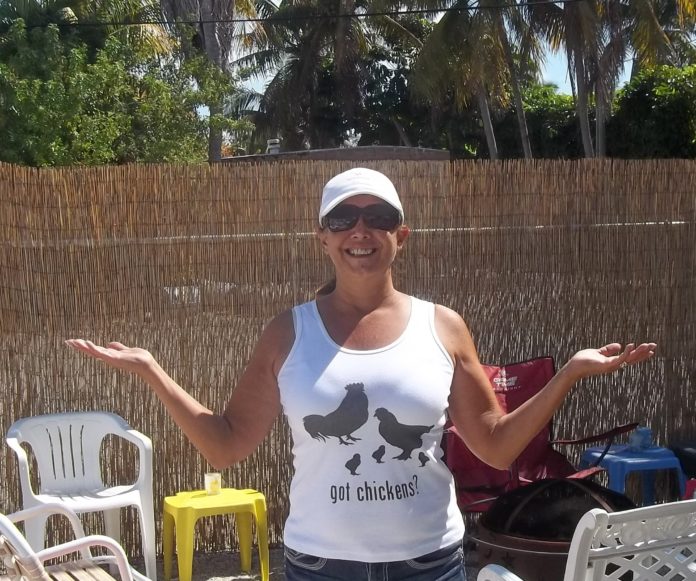People hire me at motels and residences that have an over abundance of chickens. I set up traps and charge $10 a chicken to take them to the wildlife center, where they get treated and relocated,” said licensed chicken catcher, Belinda Coyner, also known as the ‘Chicken Whisperer.’
Coyner is a passionate animal lover and moved to the island three years ago from Maine, after visiting every winter for 20-plus years. People watch the traps once she sets them and give her a call once a chicken is behind bars.
The chickens have always been a love of hers, she said, ever since she had a hen as a pet growing up. She said there’s a special technique to catching chickens.
“When I was learning how to catch chickens I was taught we have to put our head in the cage to reach them,” said Coyner. “I was afraid to put my head in so I talk them into coming out and use body language. That is why they call me the chicken whisperer.”
She boasted she has only touched one chicken out of the hundreds rescued within the three years she has been providing the service. According to Coyner, each bird has its own personality and they are very intelligent.
“I have seen them wait for the light to go red to cross the road,” she said. “Other people around town have told me they have seen the same thing.”
When she rescues the fowls she takes them to the Key West Wildlife Center. They rehabilitate, treat and relocate the animals to a number of ranches and farms near Ft. Myers, Okeechobee, Lake Wales and also to “Mom and Pop” destinations in Central Florida.
“Key West chickens are very desirable game fowls to have as pets. They represent a bloodline that goes back to the 1800’s before we engineered them to have large breasts for eating purposes,” said Key West Wildlife Center Director Tom Sweets.
Key West’s weather and readily available food makes it an ideal place for the birds to live and thrive, but Sweets is glad to see the animals relocated to more natural habitats.
“When they get into their natural state, predators control the population,” said Sweets. “Hawks only come by twice a year and they are occasionally hit by cars, but if we did not relocate any chickens it could potentially be a huge problem in Key West.”



























